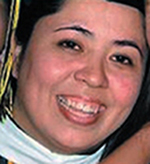 Why did you choose your specific health professional career?
Why did you choose your specific health professional career?
I have always been a “counselor” and especially enjoyed talks while making art. I had also sustained a spinal cord injury when I was 14, which forced my family to move out of our village and into a city. I remember how I held onto the cultural arts as my way to cope with the separation from our village and our traditions.
What experiences did you have to make sure this profession was right for you?
I started as a peer helper in high school. During the time I was an undergraduate college student, I volunteered at a senior center in behavioral health support. I was involved in the beginning stages of an organization that provides information on brain development in the first three years of life of infants. In addition, I completed an internship at the Carl T. Hayden VA Medical Center in the outpatient setting of the Co-Occurring Disorders clinic.
Describe any obstacles or barriers to success that you encountered along your health professional career path and how did you overcome them?
I am a female, Alaskan Native, Puerto Rican paraplegic, which has been an obstacle in many settings. I have had to break down stereotypes of all sorts to just get my foot in the door. I have had to work extremely hard at breaking down the stereotype of quietness as a sign of weakness. My traditional teachings of patience, forgiveness, and humbleness have always been what I turn to. These attributes have helped me to overcome the obstacles I have faced. I have always held on to the belief that if I stay positive and keep moving forward, my work will be noticed.
What do you do in your current job?
I work in a family medicine clinic providing behavioral health support. Providers are often not able to delve into the mental health barriers that may be preventing patients from benefiting from medical services. My job is to provide the mental health skills needed to get to the ‘root’ of the issues a patient may have. In my work, I provide brief intervention therapies and techniques for the patient. Then I will brief the medical provider on what course of action has been taken, or that I feel needs to be taken, to ensure mental and physical wellness.
What advice do you have for American Indian/Alaska Native students who are interested in health careers?
Address any mental health issues that you feel get in the way of your success. If in Western settings you feel uncomfortable, work with Traditional Healers, elders, or family to help deal with the emotional impact these settings have on you. Western teachings are not familiar to us, but recognizing that these feelings of discomfort are normal, and that you need to have a healthy way to release those pent up emotions.

